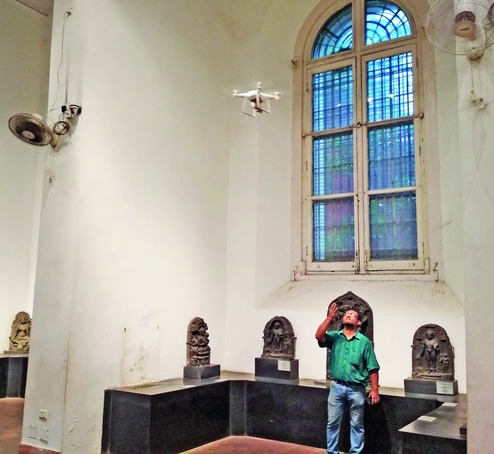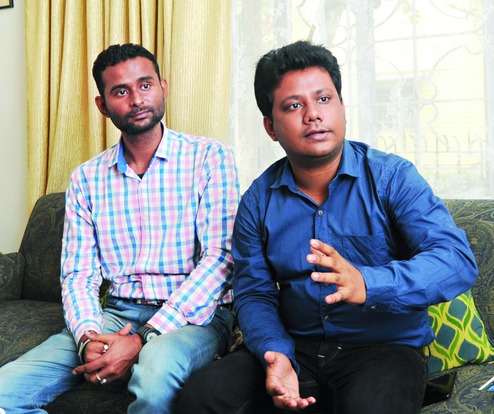
Calcutta:
A start-up born out of a career setback has started soaring on the rotor blades of drones.
RC Hobbytech Solutions Pvt Ltd, started by two friends, specialises in building unmanned aerial vehicles, commonly known as drones, and has already bagged orders from the Indian Army, the railways and Calcutta police, among others.
Flooded with contracts, the fledgling start-up is servicing these orders with a soft loan from IIM Calcutta, project-based finance from banks and the Rs 1.5 crore it won in a competition launched by Balmer Lawrie under the Startup India scheme in November.
For co-founder Biswajit Dey, a graduate in aeronautical engineering from St Peter’s University in Chennai, RC Hobbytech was a seed sown by the disappointment of missing out on a chance to join the Army Aviation Corps because of an accident that put him in hospital for three-and-a-half months.
A dejected Biswajit came to Calcutta to meet his school friend Ritesh Kanu, who had just graduated in business management from Techno India Salt Lake and was to appear for an interview at the RBI.
Ritesh didn’t go for the interview. Instead, he and Biswajit decided to launch their start-up.
“I liked making drones and fiddling with them while Ritesh was trained to market them. That made us a good team,” said Biswajit, who learnt the basics of drone technology in college. “There is a huge market for unmanned aerial vehicles in agriculture, surveillance and mining,” said Ritesh.

Picture by Sanat Kr Sinha
RC Hobbytech is working on drone technology to replace the army’s system of detecting intruders along the country’s vast borders. “The army sets up poles with two free-hanging bottles to detect intruders. Whenever an infiltrator tries to cross a border fence, the bottles make a noise and alert the sentries at the forward post. They have electric fences but the wiring can be cut and the alarm system switched off,” Ritesh said.
The start-up’s Drones Tech Lab division has devised an Intruder Detection System based on GPS for the army. The system sends alerts to the forward post and control room in three seconds whenever an intruder is detected. The information includes the exact position of the suspected infiltrator.
“Our system is based on sensors and also sends messages over mobile phone, giving the correct location,” said Biswajit.
A pilot run of the system at Udhampur in Kashmir from March to April earned a letter of appreciation from the army, Biswajit said.
He is currently modifying the system to give it an industrial finish along with camouflage.
From a drone start-up, Biswajit and Ritesh are now a “solutions provider in surveillance industry, leveraging unmanned technology and integrating hardware, software and data analysis”.
They had started with a capital of Rs 4 lakh in 2014 and ended up burning the cash in a year. When their families started asking what they were up to, the duo stopped going home. They then floated a company called EduRade to teach drone technology in institutes and raise money. “It was in 2016 that we pitched for incubation at IIM Calcutta. We met Subhranghshu Sanyal, CEO of the IIMC Innovation Park, at an event and he liked our product. We were incubated in October 2016,” Biswajit recalled.
Sanyal is impressed with what the duo have done so far. “They are providing real-time solutions to problems that are quite risky for human beings to solve. Their work for the army takes risk away and improves accuracy, which is fantastic,” he said.
source: http://www.telegraphindia.com / The Telegraph, Calcutta,India / Home> Calcutta / by Anasuiya Basu / December 28th, 2017
has already bagged orders from the Indian Army, the railways and Calcutta police, among others.